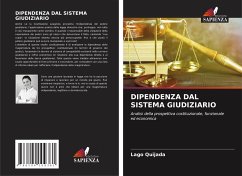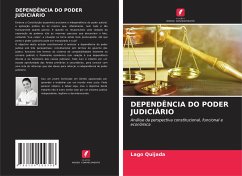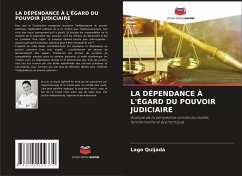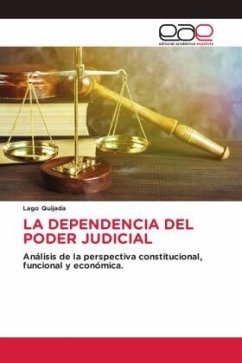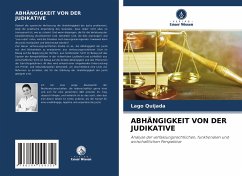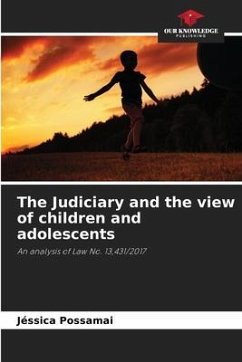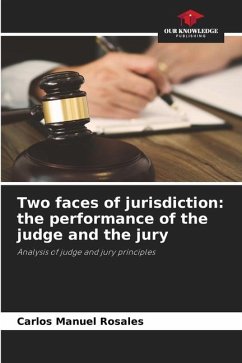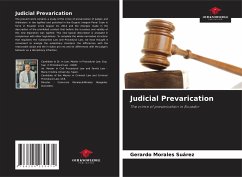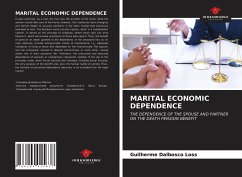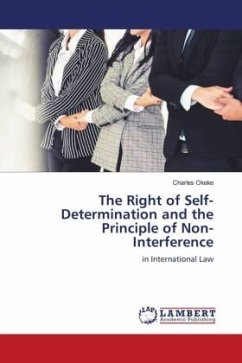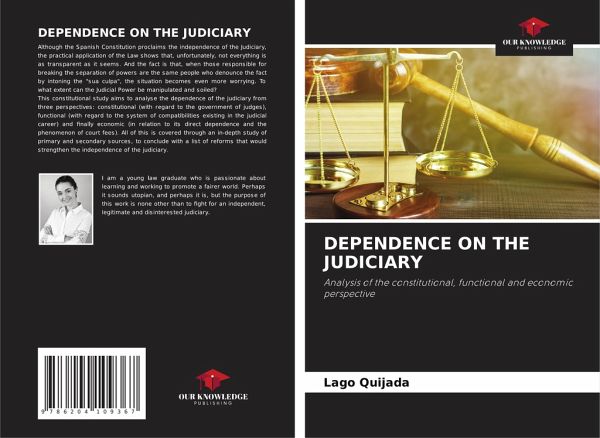
DEPENDENCE ON THE JUDICIARY
Analysis of the constitutional, functional and economic perspective
Versandkostenfrei!
Versandfertig in 6-10 Tagen
27,99 €
inkl. MwSt.

PAYBACK Punkte
14 °P sammeln!
Although the Spanish Constitution proclaims the independence of the Judiciary, the practical application of the Law shows that, unfortunately, not everything is as transparent as it seems. And the fact is that, when those responsible for breaking the separation of powers are the same people who denounce the fact by intoning the "sua culpa", the situation becomes even more worrying. To what extent can the Judicial Power be manipulated and soiled? This constitutional study aims to analyse the dependence of the judiciary from three perspectives: constitutional (with regard to the government of ju...
Although the Spanish Constitution proclaims the independence of the Judiciary, the practical application of the Law shows that, unfortunately, not everything is as transparent as it seems. And the fact is that, when those responsible for breaking the separation of powers are the same people who denounce the fact by intoning the "sua culpa", the situation becomes even more worrying. To what extent can the Judicial Power be manipulated and soiled? This constitutional study aims to analyse the dependence of the judiciary from three perspectives: constitutional (with regard to the government of judges), functional (with regard to the system of compatibilities existing in the judicial career) and finally economic (in relation to its direct dependence and the phenomenon of court fees). All of this is covered through an in-depth study of primary and secondary sources, to conclude with a list of reforms that would strengthen the independence of the judiciary.



